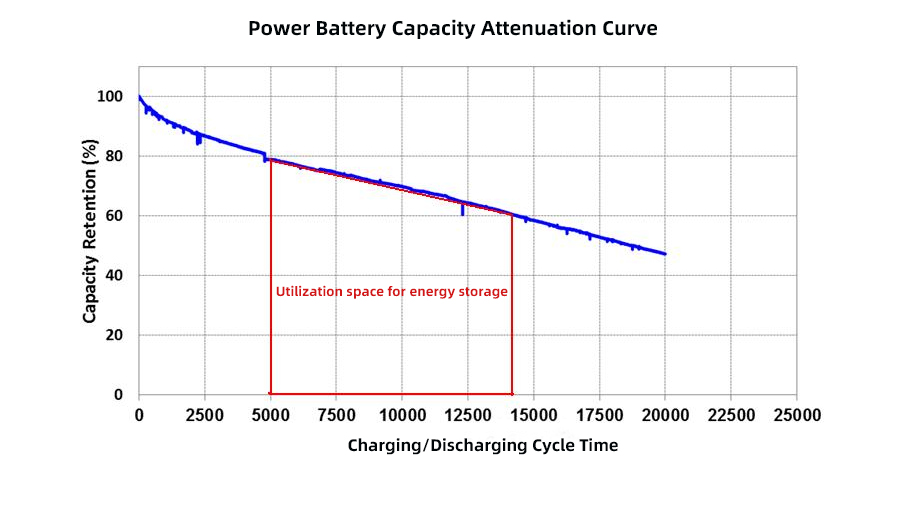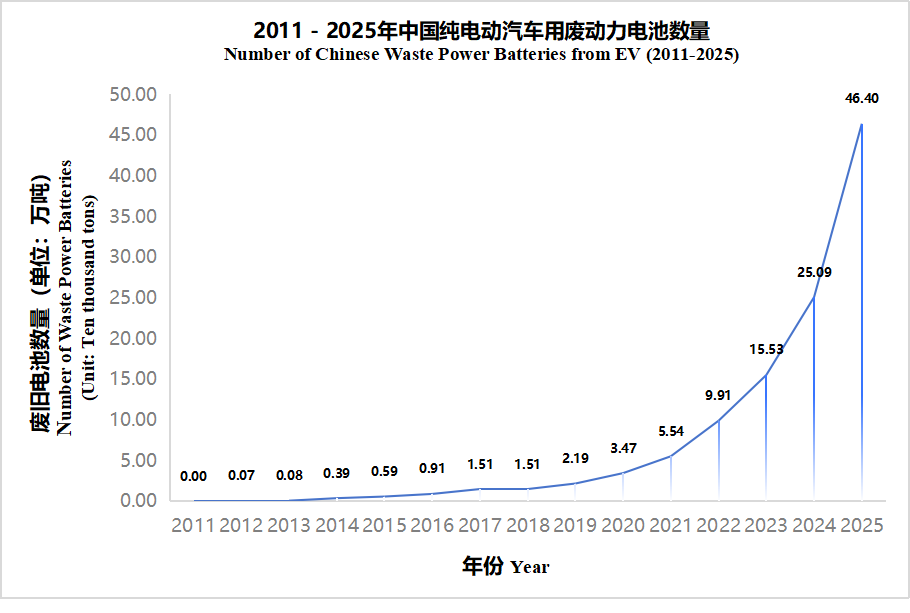

The battery attenuation is gradually slowing down, after long-term use, the battery cannot continue to be used in the EV as it cannot meet the vehicle driving range, but it is still valuable for energy storage; Under the premise of ensuring other performance requirements, there is still available space between "vehicle battery life" and "battery life", therefore, the "retired" battery is screened and recycled, and then re-applied to applications such as peak-load shifting, power backup, capacity expansion and new energy consumption so as to achieve the cascade utilization of batteries.

Sustainability and safety are paramount in today's business landscape.
· The real retired battery has passed the enough EV mileage test with its safety and reliability been fully verified.
· The total CO2 emissions from the production of the new battery is about 80kg/kWh, while new carbon emissions are minimal when the cascade battery is manufactured. (Source: Carbon Neutral Governor)

Don't hesitate to start now!
· In June 2023, the U.S. Department of Energy announced that it would provide more than $192 million (about ¥1.399 billion) to promote the battery recycling technology research and development and create an Advanced Battery R&D Alliance.
· In August 2023, the 'Regulation Concerning Batteries and Waste Batteries (EU) 2023/1542' came into force, and the latest battery regulation will ensure batteries to reduce the carbon footprint in the future and become highly collected, reused and recycled in Europe.
· On January 20, 2023, the Ministry of Industry and Information Technology of the General Administration of Market Supervision issued the Announcement on 'The Implementation of Product Certification for Cascade Utilization of New Energy Vehicle Power Batteries', encouraging qualified enterprises that produce certified cascade products to apply for recognition as "Little giant" enterprises; Encouraging qualified regionals to speed up the construction of resource recycling systems, and use certified cascade utilization products in government investment projects, key projects, and municipal public projects.